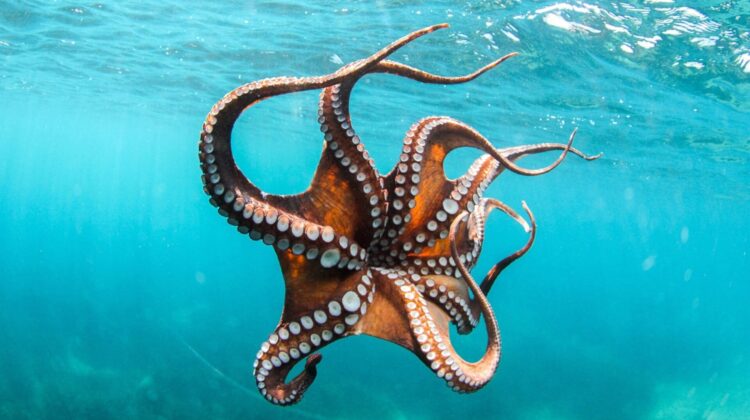
Octopuses, with their enigmatic presence beneath the ocean’s surface, are unquestionably among Earth’s most captivating creatures. Remarkably, they have graced our planet for a staggering 296 million years, evolving into versatile and astute animals over the aeons.
A distinctive aspect of octopuses is their tripartite heart system. While two of their hearts dutifully pump oxygenated blood through their gills, the third heart undertakes the vital task of circulating oxygen to every nook and cranny of their remarkable bodies. Furthermore, their hemolymph—the equivalent of blood in these marine marvels—takes on a striking azure hue. This remarkable coloration is due to the presence of hemocyanin, a copper-based protein that efficiently binds and transports oxygen.
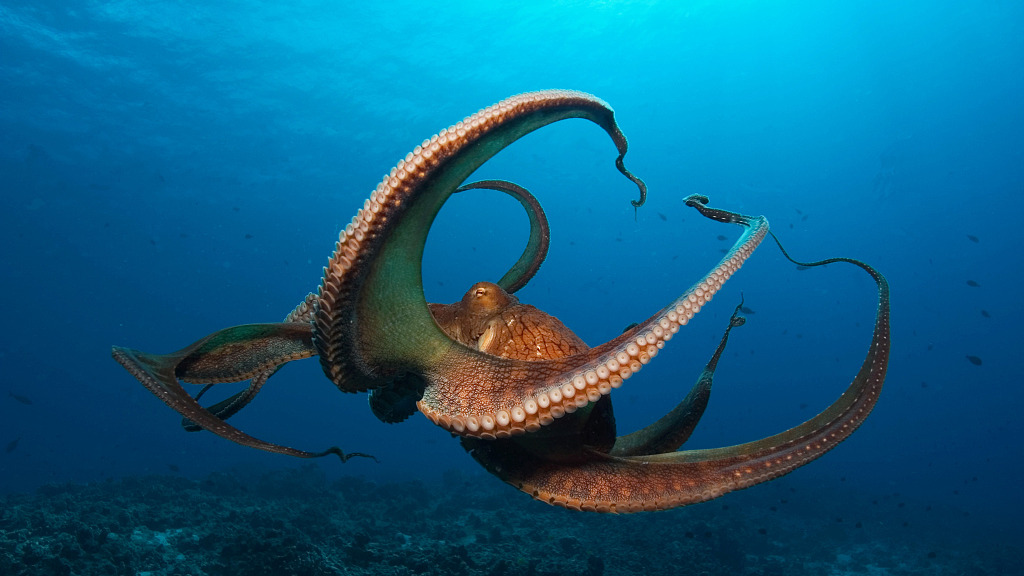
The elegance and grace with which octopuses move underwater are simply mesmerizing. Their eight dexterous tentacles, each equipped with countless suckers, enable them to gracefully propel themselves through the aqueous realm while adeptly manipulating objects in their path. Such fluidity of movement is a testament to the inherent intelligence of these fascinating cephalopods, as they can be trained to perform complex tasks, demonstrating their cognitive prowess.
Octopuses possess well-developed eyes, a testament to their keen visual acuity. Notably, they perceive the world in vibrant colors, even in low-light conditions, a feature that further bolsters their hunting capabilities.
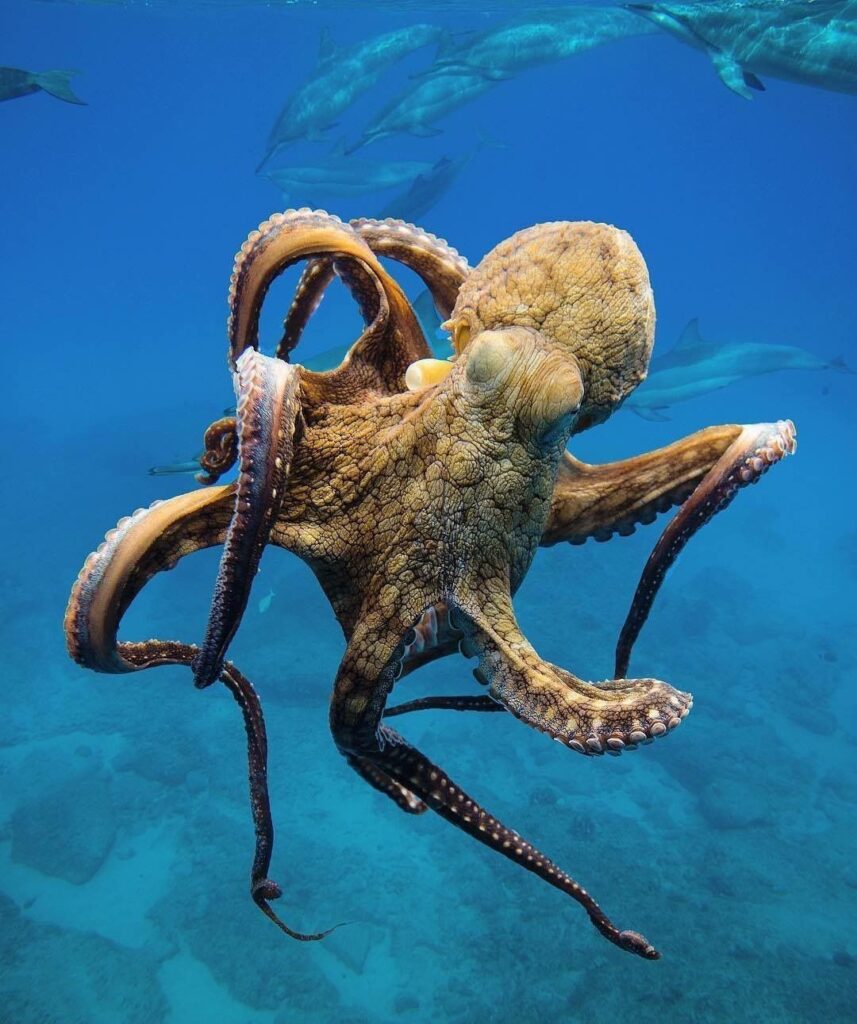
A remarkable adaptation lies in the octopus’s ability to metamorphose both in color and texture, rendering them virtually invisible to predators and prey alike. This chameleon-like trait serves as a defense mechanism, allowing them to escape potential danger or stealthily approach unsuspecting prey.
Venomous by nature, octopuses employ their toxic arsenal to either immobilize or kill their quarry. This venom, secreted through specialized glands, serves as a potent tool in their quest for sustenance.
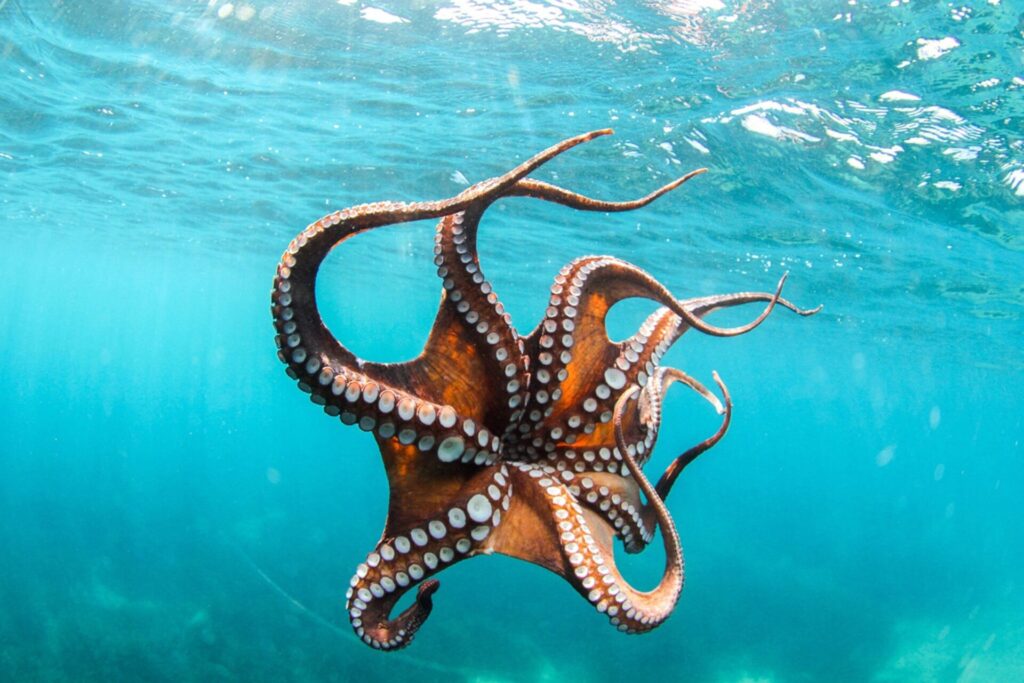
Regrettably, the awe-inspiring lives of octopuses are comparatively brief, with most species living for just one or two years. This fleeting existence stands as a poignant reminder of the transient beauty that graces the depths of our oceans.
In the intricate web of marine life, octopuses play a pivotal role. As voracious predators, their diet comprises a variety of marine inhabitants, including fish, crabs, and other invertebrates. Simultaneously, they also find themselves in the crosshairs of formidable adversaries like sharks and other apex marine predators.
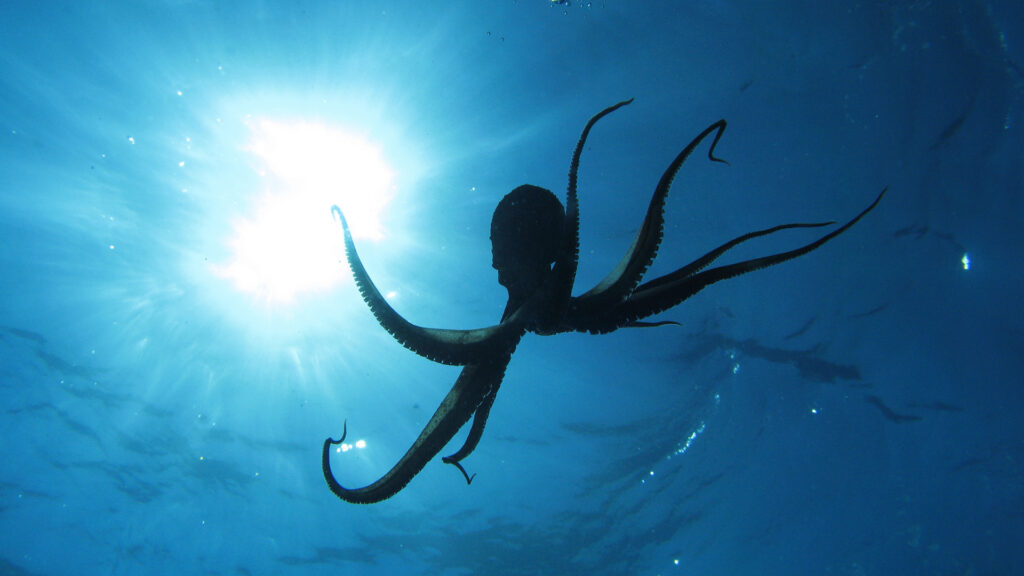
If you ever have the good fortune to encounter an octopus in its natural habitat, take a moment to marvel at its elegance and grace. These creatures serve as a testament to the inexhaustible diversity and wonder of the natural world, capturing the essence of life’s profound beauty and the marvels of our planet’s oceans.

Leave a Reply